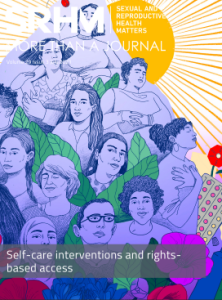July 24, 2024:
June 24 marks the beginning of self-care month each year, ending on July 24, which is celebrated as the International Self-care Day. This month and day are an opportunity to raise awareness on the importance of self-care and self-care interventions, acknowledge their benefits on people’s lives and health, and call for the expansion of health systems to include and promote self-care interventions.
Self-care interventions are evidence-based tools that support self-care, involving the use of medicines, devices, diagnostic and digital tools, and educational resources, to equip people to have greater agency over their own health.
Why is self-care important?
Often, relying solely on healthcare institutions and practitioners may be cost ineffective, time consuming, and inconvenient. What’s more, healthcare institutions may not cater to people of all socio-economic classes, increasing the gap. Taking charge of one’s own health and wellbeing empowers individuals, as they can play a greater role in their treatment and make informed choices about their future course of action. More importantly, self-care interventions can also reduce health inequities by increasing access to affordable health-care options.
Self-care and sexual and reproductive health
Sexual and reproductive health (SRH) is an integral aspect of our lives, and self-care interventions that increase the availability of resources, information, and treatment options can help enhance high-quality, holistic SRH, making it attainable for all. In several regions of the world, such as countries in sub-Saharan Africa and South Asia, there are still several disparities in access and quality of SRHR.
The SRHM journal has published several high-quality articles on self-care interventions for quality SRH. In 2022, the journal published an issue on Self-care interventions and rights-based access.

The issue contains articles that explore several important aspects, such as education as an enabler to ensuring self-care for all, social accountability in the expansion of self-care for SRHR, the potential and efficacy of digital self-care tools in expanding access to legal abortion care and enhancing family-planning decisions, particularly for vulnerable populations, self-administration of gender-affirming hormones, and more. These articles also discuss the challenges in the implementation and acceptance of such interventions in different cultural and political contexts, especially in the Global South, drawing from the lived experiences of local communities.
SRHM is committed to using knowledge and evidence to increase action that can enable optimum implementation of self-care interventions for SRHR. We are also calling for papers on this topic for the 2024 Open Issue. More information can be found on our Call for Papers Page.
Please find below a list of articles published by SRHM over the last 10 years on the topic of self-care and sexual and reproductive health.
2023
Reach, experience, and acceptability of an abortion self-care intervention in Bolivia: a mixed-methods evaluation
Acre, V. N., Küng, S. A., Arce, C., Yapu, A., Iriondo, D., & Morales, M.
Effects of a clinic-based reproductive empowerment intervention on proximal outcomes of contraceptive use, self-efficacy, attitudes, and awareness and use of survivor services: a cluster-controlled trial in Nairobi, Kenya
Uysal, J., Boyce, S. C., Undie, C. C., et al.
Missed period? The significance of period-tracking applications in a post-Roe America
Kelly, B. G., & Habib, M.
2022
Reproductive empowerment and contraceptive self-care: a systematic review
Burke, H. M., Ridgeway, K., Murray, K., et al.
Uptake and provision of self-care interventions for sexual and reproductive health: findings from a global values and preferences survey
Logie, C. H., Berry, I., Ferguson, L., et al.
Law, human rights and gender in practice: an analysis of lessons from implementation of self-care interventions for sexual and reproductive health
Ferguson, L., Narasimhan, M., Gutierrez, J., et al.
Centring rights-based access to self-care interventions
Ferguson, L., & Narasimhan, M.
Digital self-care for improved access to family planning and reproductive health services among adolescents in Rwanda: preliminary findings from a pilot study of CyberRwanda
Hémono, R., Packel, L., Gatare, E., et al.
Education as an enabler, not a requirement: ensuring access to self-care options for all
Corneliess, C., Gray, K., Kidwell Drake, J., et al.
Considerations for social accountability in the expansion of self-care for sexual and reproductive health and rights
Kibira, D., Boydell, V., Mworeko, L., & Kiarie, J.
Supporting contraceptive choice in self-care: qualitative exploration of beliefs and attitudes towards emergency contraceptive pills and on-demand use in Accra, Ghana and Lusaka, Zambia
Kalamar, A., Bixiones, C., Jaworski, G., et al.
Safe abortion within the Venezuelan complex humanitarian emergency: understanding context as key to identifying the potential for digital self-care tools in expanding access
Luigi-Bravo, G., & Gill, R. K.
A qualitative exploration of how the COVID-19 pandemic shaped experiences of self-managed medication abortion with accompaniment group support in Argentina, Indonesia, Nigeria, and Venezuela
Bercu, C., Filippa, S., Jayaweera, R., et al.
Overcoming challenges in research on self-managed medical abortion: lessons from a collaborative activist–researcher partnership
Kristianingrum, I. A., Nmezi, S., Zurbriggen, R., et al.
2021
In-person later abortion accompaniment: a feminist collective-facilitated self-care practice in Latin America
Bercu, C., Moseson, H., McReynolds-Pérez, J., et al.
Feasibility of HPV self-sampling pathway in Kathmandu Valley, Nepal using a human-centred design approach
Shrestha, S., Thapa, S., Sims, P., et al.
Self-managed abortion: a constellation of actors, a cacophony of laws?
Berro Pizzarossa, L., & Nandagiri, R.
2020
Self-care interventions for sexual and reproductive health and rights for advancing universal health coverage
Narasimhan, M., Logie, C. H., Gauntley, A., et al.
Why self-managed abortion is so much more than a provisional solution for times of pandemic
Assis, M. P., & Larrea, S.
2019
Prevalence, attitudes and knowledge of misoprostol for self-induction of abortion in women presenting for abortion at Midwestern reproductive health clinics
Kerestes, C., Sheets, K., Stockdale, C. K., et al.
2016
Self-management of medical abortion: a qualitative evidence synthesis
Wainwright, M., Colvin, C. J., Swartz, A., & Leon, N. et al.
2013
Rights-based services for adolescents living with HIV: adolescent self-efficacy and implications for health systems in Zambia
Mburu, G., Hodgson, I., Teltschik, A., et al.